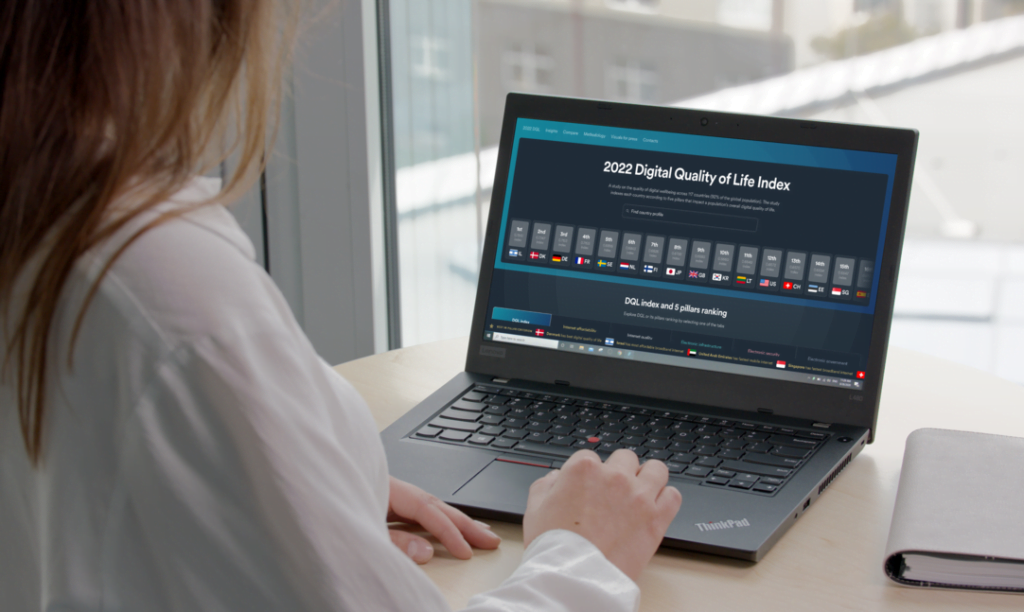Israel has the world’s most affordable internet in the world, says a new study.
And it is ranked number one globally for Digital Quality of Life – an overall measure of internet quality, price, infrastructure and security.
That’s based on a study of more than 7.2 billion people by Surfshark, a Dutch virtual private network (VPN) and private search tool provider.
It found that the cost of 1GB of mobile internet was equivalent to just five seconds of work per month – 58 times less than in the US.
In Uganda, by comparison, people need to work an average of two weeks to pay for the cheapest fixed broadband internet package.
The study analyzed the digital wellbeing of 117 countries, or 92 per cent of the global population.
It evaluated countries based on five fundamental digital wellbeing pillars: internet quality, internet affordability, e-security (such as information security), e-government (public services provided through the internet), and e-infrastructure (the combination of digital technologies, resources, communications and the people needed to manage them).
Israel still has room for improvement in the other digital parameters that were analyzed, with e-government, or access to online government services, being its worst score (ranking 33rd globally). Internet quality services come 21st, while e-infrastructure and e-security rank 28th and 32nd, respectively.
“While countries with a strong digital quality of life tend to be those of advanced economies, our global study found that money doesn’t always buy digital happiness,” said Gabriele Racaityte-Krasauske, Head of PR at Surfshark.
“That is why, for the fourth year in a row, we continue analyzing the Digital Quality of Life to see how different nations keep up with providing the basic digital necessities for their citizens. Most importantly, our research seeks to show the full picture of the global digital divide that millions of people are suffering from.”
The Internet globally is becoming less affordable with every passing year. The research found that people have to work six minutes longer to afford broadband internet in 2022.
Related posts

Israeli AI Safety Tool Among TIME’S Best Inventions For 2024

TAU Team Discovers Mechanism To Eliminate Cancerous Tumors

Ashdod Port Investing In Startups As Part Of Innovation Strategy




Facebook comments